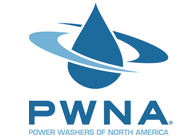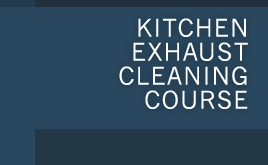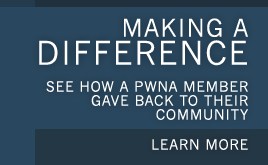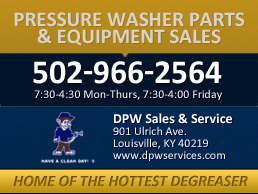Resources for Regulators
The Oregon Study of Cosmetic Cleaning, June 1994
- Best Management Practices: (PDF)
- Characterization of Waste Wash Water: (PDF)
- Investigation of Washing Activities: (PDF)
updated BMP documents
- 2011 PWNA Containment & Disposal BMP's: (PDF) / (Powerpoint)
- 2011 PWNA Cosmetic Cleaning BMP's: (Word)
- 2011 PWNA Environmental Codes - Stormwater Protection: (PDF)
April 2004: EPA Guidance on the Ninth Circuit Court Decision for MS4s [PDF Format] - This memo provides interim guidance on implementing the Stormwater Phase II program for Municipal Separate Storm Sewer Systems (MS4s) in light of the decision by the U.S. Court of Appeals for the Ninth Circuit (Environmental Defense Center, et. al. v. EPA, September 15, 2003). The guidance covers several issues related to the implementation of the MS4 program, including public availability of NOIs, opportunities for public hearings, and review of NOIs by permitting authorities.
Houston did not give the industry a chance to comment on their BMPs before implementation.
For NPDES Phase II requirements related to IDDE (e.g., car wash wastewaters), please refers to the 40 CFR - 122.34(b)(3). The following website and fact sheets are very useful to understand the referenced federal regulations:
http://cfpub1.epa.gov/npdes/stormwater/swfinal.cfm
http://www.epa.gov/npdes/pubs/fact2-5.pdf
Here is the 40 CFR 122.34(b)(3) with the language requiring an "Ordinance":
(3) Illicit discharge detection and elimination. (i) You must develop, implement and enforce a program to detect and eliminate illicit discharges (as defined at § 122.26(b)(2)) into your small MS4. (ii) You must: (A) Develop, if not already completed, a storm sewer system map, showing the location of all outfalls and the names and location of all waters of the United States that receive discharges from those outfalls; (B) To the extent allowable under State, Tribal or local law, effectively prohibit, through ordinance, or other regulatory mechanism, non-storm water discharges into your storm sewer system and implement appropriate enforcement procedures and actions;
You can find the complete 122.34(b) at:
Permits & Technical Assistance Section (6WQ-PP)
NPDES Permits & TMDLs Branch
Water Quality Protection Division
US EPA Region 6
1445 Ross Ave.
Dallas, Texas 75202
Note: Specifically Mentioned:
- Sanitary wastewater
- Effluent from septic tanks
- Car wash wastewater
- Improper oil disposal
- Radiator flushing disposal
- Laundry wastewater
- Spills from roadway accidents
- Improper disposal of auto and household toxics
PWNA environmental committee members:
- Robert Hinderliter:
President of the Environmental Committee and Chairman of the Central U.S. - Jim Gamble:
Environmental Chairman of the Western U.S. - Charlie Arnold
Environmental Chairman of the Eastern U.S - Paul Horsley:
Environmental Chairman of Canada.
PWNA water reclaimer
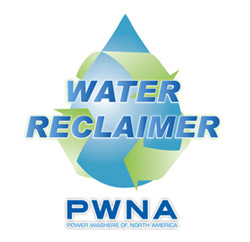
Part of business in today’s world is to lessen or eliminate our impact on our environment. The PWNA brings together resources from across the continent to educate and promote cleaning practices that recycle, reclaim, filter and protect fish and wildlife from storm sewer run off. Water has become a very valuable resource. In some parts of the country water is tightly regulated and watering bans on power washing companies can put people out of business. The PWNA’s education and best practices communicates to local state and municipalities how the commercial power washer is a vital part of protecting our lakes, rivers, oceans and water supply.
If you are NOT promoting (and practicing) environmentally responsible services for your power washing company… what message are you giving your customers and the community?
Let your customers know you share their concerns about our planet by signing up for PWNA’s new Water Reclaimer Program.
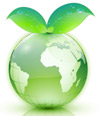 This unique program is designed specifically to assist mobile pressure wash contractors in promoting their environmentally friendly business practices and educating customers about the environmental benefits of contracting professional mobile pressure wash technicians. Reclaiming and recycling is a very powerful marketing message. Environmental cleaning methods are quickly becoming an essential business model.
This unique program is designed specifically to assist mobile pressure wash contractors in promoting their environmentally friendly business practices and educating customers about the environmental benefits of contracting professional mobile pressure wash technicians. Reclaiming and recycling is a very powerful marketing message. Environmental cleaning methods are quickly becoming an essential business model.
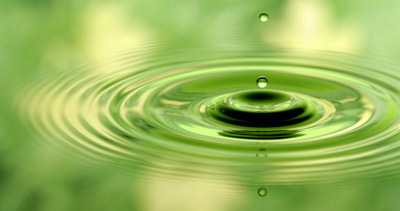
whats in it for you
Every industry needs to develop and utilize environmentally sound business practices that are unique to their market  niche. In the power washing industry, water reclamation and recycling are the top priorities. As a visible user
niche. In the power washing industry, water reclamation and recycling are the top priorities. As a visible user
of water -- a renewable but precious natural resource -- professional mobile pressure washers have an opportunity (and obligation) to demonstrate their leadership in this area.
Promoting the fact that your company is proud to be a “Water Reclaimer” helps raise awareness to your customers and local water regulators that professional mobile pressure washers are environmentally friendly businesses.
PWNA now provides you with a great way to champion your commitment to environmental stewardship and to differentiate your business from your competitors.
program costs
$59.OO per mobile unit
